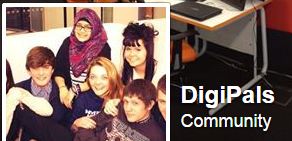 149 institutions participated in Changing the Learning Landscape, a HEFCE funded partnership programme supporting technology enhanced learning change initiatives. The projects have now finished and the Leading the Learning Landscape Network aims to continue to support those engaged in innovation and experimentation, grow a community of practice and offer practical help to those involved in large scale technology enhanced learning change projects. In November, a small number of participants from around the UK came together to one of these network meetings to share experiences and resources. A new website will be launched shortly which brings together findings from the Changing the Learning Landscape and will disseminate guidance such as how to run a strategic conversation and case studies.
149 institutions participated in Changing the Learning Landscape, a HEFCE funded partnership programme supporting technology enhanced learning change initiatives. The projects have now finished and the Leading the Learning Landscape Network aims to continue to support those engaged in innovation and experimentation, grow a community of practice and offer practical help to those involved in large scale technology enhanced learning change projects. In November, a small number of participants from around the UK came together to one of these network meetings to share experiences and resources. A new website will be launched shortly which brings together findings from the Changing the Learning Landscape and will disseminate guidance such as how to run a strategic conversation and case studies.
As Lawrie Phipps, the Changing Learning Landscapes consultant from the JISC that worked with City, stated, ‘it’s never about the technology’. Increasingly the role of educational technologists is about bringing about change, innovating, leadership development. Fora, like these, to come together and compare experiences, gather ideas, and learn from each other are crucial.
Patsy Cullen, who acted as a critical friend and evaluator of the programme, shared the familiar fundamentals of what is needed to create an environment to bring about wide scale, lasting change. That is:
- Strategic Vision – what does success look like?
- Leadership – someone who can say, let’s do it!
- Staff Confidence and Competence – identity as professionals and willingness to share and work in teams
- Robust Infrastructure – such as wifi, power sockets.
Blackburn College and University College London shared two examples of how the programme was used to support change at their institutions.
Digifest, UCL‘s antidote to the conference, was a ‘celebration of all things digital at UCL‘ ran this Autumn.  Steve Rowett presented the history and staging of this exciting, innovative festival which involved collaboration and student partnership across the institution. A highlight included the use of a routemaster bus for gatherings and screenings. This event strengthens a feeling of community and inspiration.
Steve Rowett presented the history and staging of this exciting, innovative festival which involved collaboration and student partnership across the institution. A highlight included the use of a routemaster bus for gatherings and screenings. This event strengthens a feeling of community and inspiration.

Learning Wheel from http://www.blackburn.ac.uk/about-us/welcome/65m-student-village/learning-through-technology/
Deborah Millar, a lively and inspiring speaker from Blackburn College shared development of the Learning Wheel used to support academics using educational technology tools and techniques. The wheel is based on four modes of engagement; Collaboration, Communication, Content, Assessment and modes of delivery. Blackburn also uses Digipals, a team of student and staff ambassadors focused on improving the learning experience with technology. Find out more about Digipals at http://vimeo.com/112058730
Keeping up the momentum and connections between institutions around bringing about educational change will continue to be beneficial to our work.



Leave a Reply